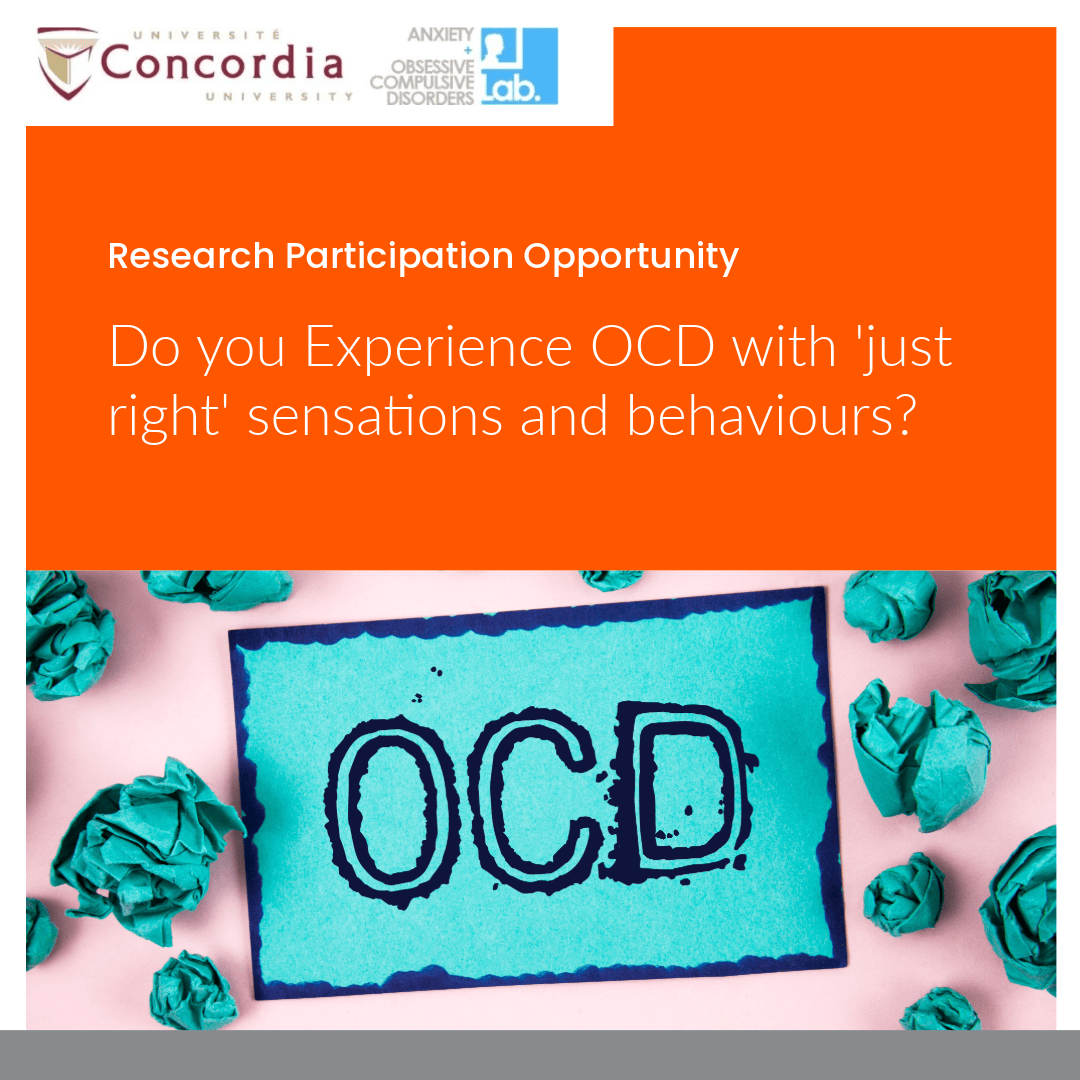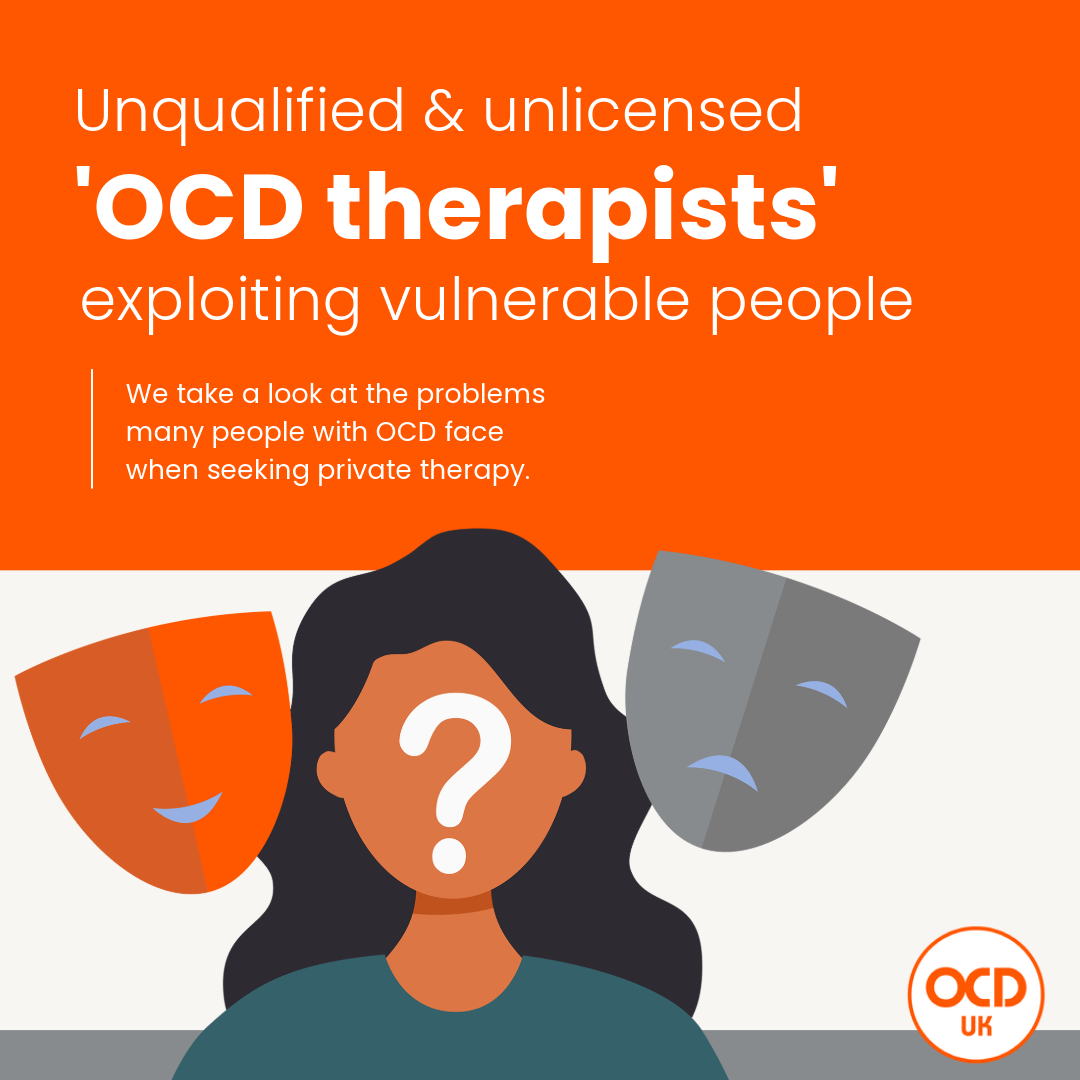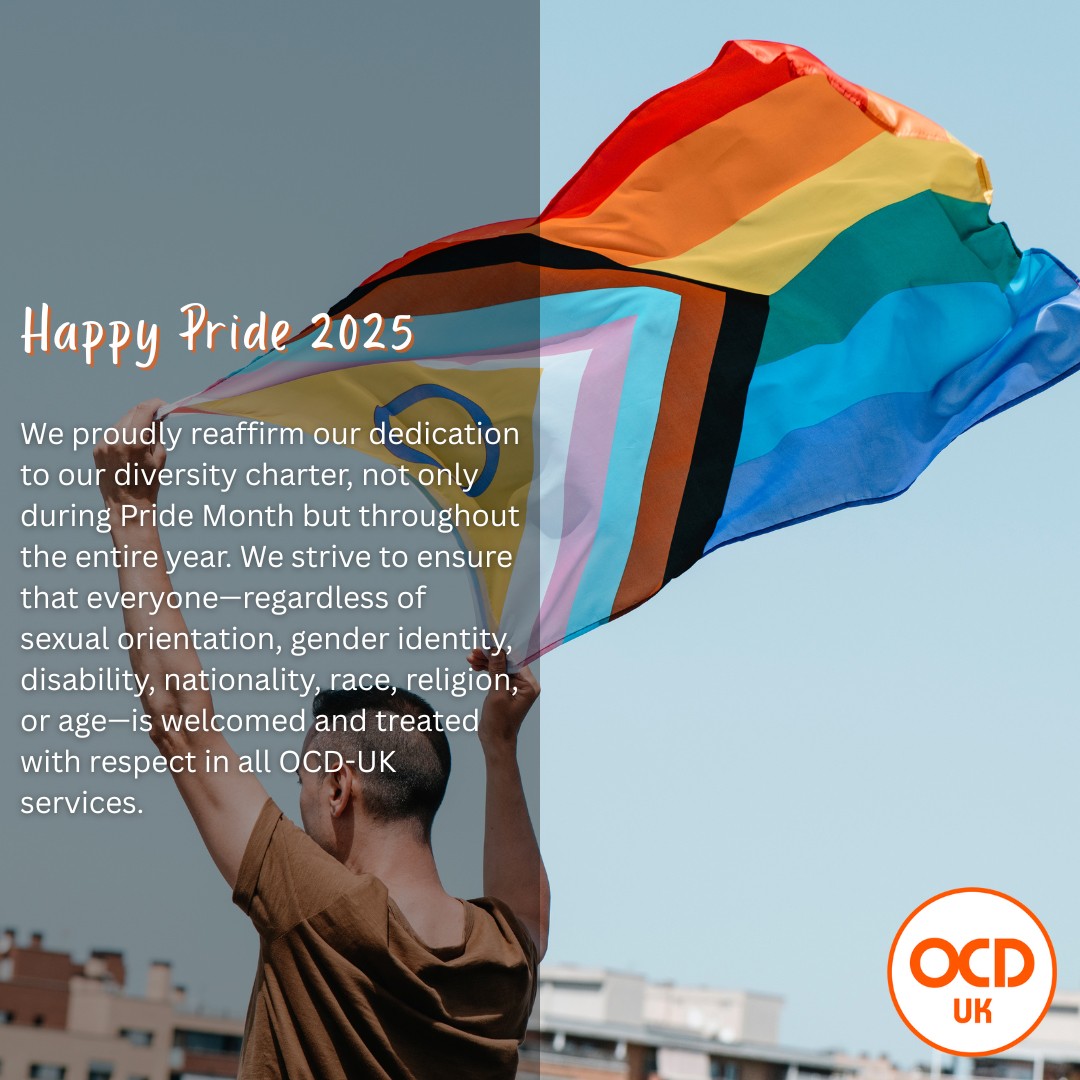Obsessive–Compulsive Disorder (OCD) during pregnancy and after having a baby has, until recent years, received relatively little research attention. Pregnancy and having a baby can be exciting but also demanding as women adjust to the change to their bodies and lifestyle. It’s not uncommon for women to feel more anxious at this time, with some going on to develop a mental health problem, such as OCD. Evidence shows some women develop OCD for the first time either during pregnancy or shortly afterwards, with others finding that their pre-existing OCD symptoms and traits become significantly worse. Of course some women with a history of OCD remain well during pregnancy, but it can be helpful to be prepared and we hope this page will go some way to help with that.
When OCD occurs during pregnancy it is referred to as OCD during a prenatal or antenatal period. The word ‘prenatal‘ is made up of pre, ‘before’ in Latin, and natal, which comes from natus, Latin for ‘to be born.’, the term antenatal is sometimes used instead of prenatal here in the UK. The term perinatal is also sometimes used if OCD occurs during the period around the birth. The word ‘perinatal’ is a hybrid of the Greek ‘peri’ meaning ‘around or about’. When OCD occurs after giving birth it is known as OCD during a postnatal or postpartum period. Generally here in the UK, postnatal would be the term used (postpartum is more frequently used in the US). Postnatal actually means ‘after birth’ in Latin.
OCD at this time is likely to be related to the fact that pregnancy and early parenthood is a time when mums are naturally focused on the safety of their developing child and feel uniquely responsible for them. Women can become very concerned about protecting their baby and about how their actions might impact on their unborn child. It is also a time of increased stress, major physical change and transition to a new role, all of which can increase vulnerability to developing difficulties.
New fathers may also experience OCD around this time because of the increased feelings of responsibility to protect their new baby, a strong indicator that hormonal factors are just part of the story.
As mentioned previously, OCD fixates on subjects or people that are important to the person affected, and OCD during pregnancy is no different. For the person affected, their obsessions will most likely be fixated on worries and fears related to hurting their baby. Equally, a heightened sense of responsibility which we mentioned earlier, it is common across other forms of OCD. The added responsibility of caring for and protecting a newborn baby will add to this heightened sense of responsibility and help fuel obsessions and worries.
The obsessions focus on the fear of purposely harming their newborn baby, or somehow being responsible for accidental harm.
 It is important to note that the occasional experience of all of these worries is absolutely normal and indeed very common in mums and mums-to-be. However, just like with other forms of OCD, some mums find themselves so distressed that they will take measures to manage their anxiety or prevent their fears coming true. In this way the thoughts and behaviours can interfere significantly with their well-being and their experiences of pregnancy and parenting.
It is important to note that the occasional experience of all of these worries is absolutely normal and indeed very common in mums and mums-to-be. However, just like with other forms of OCD, some mums find themselves so distressed that they will take measures to manage their anxiety or prevent their fears coming true. In this way the thoughts and behaviours can interfere significantly with their well-being and their experiences of pregnancy and parenting.
For example, in pregnancy a woman may be very concerned that something she eats or touches may cause harm to the unborn baby. This may cause her to avoid and restrict foods, places and situations well beyond the recommended guidelines in order to keep as safe as possible, or at least to feel that she has done everything in her power to do so. She may spend large amounts of time cleaning and washing and ask those around her to do the same. After the birth, these concerns may revolve around illnesses of childhood, she might take measures such as excessively checking her child when asleep resulting in her not sleeping or relaxing herself.
Again as with other forms of OCD, women with such concerns may seek excessive reassurance from their partner or family and friends that the baby is developing satisfactorily and that her behaviour is ‘safe’.
Another common OCD theme for new mums is around thoughts of harming their child. After the birth, many parents experience occasional fleeting thoughts about deliberately harming their baby, but they are able to dismiss them as meaningless. Whilst many new mothers have these thoughts , those with OCD or signs of, interpret the very fact that they have these thoughts as meaning that they may act on them and become frightened about their potential to harm their baby in a moment of madness. They may then avoid contact with their baby or take special measures to stay ‘safe’ around them such as hiding knives and sharp objects in the home.
Mothers with OCD do not act on their thoughts of harming their baby. In fact, people with OCD go to extreme lengths to prevent any perceived threat of harm, which is what leads to the repetitive cycle of anxiety and fear.
Of course this type of OCD does not just affect parents, it can also affect people with OCD who are not pregnant or don’t have children. So whilst this type of OCD is not unique, what is unique is it’s impact on new mums at a very special and precious time when they should be able to enjoy every moment with their newborn baby. Unfortunately, OCD can leave a mother unable to enjoy those precious moments and even prevent them from bonding at all.
The symptoms of prenatal and postnatal OCD vary widely from individual to individual, and like other forms of OCD, some mothers experience similar symptoms related to OCD to those listed on the types of OCD page. Whilst the list below is not exhaustive, it offers an insight into some of the common obsessions seen in the prenatal or postnatal period:
- intrusive thoughts of stabbing the newborn baby
- intrusive thoughts of suffocating or drowning the newborn baby
- unwanted images of throwing or dropping a baby
- disturbing thoughts of sexually abusing a child
- fear of accidentally harming a child through carelessness
- intrusive thoughts of accidentally harming the foetus by exposure to medications, chemicals, or certain foods
- fear of being responsible for giving a child a serious disease
- fear of making a wrong decision (i.e., getting inoculations, feeding certain foods, taking antidepressants) leading to a serious or fatal outcome.
The list below (again, not exhaustive) offers an insight into some of the common compulsions seen in the prenatal or postnatal period:
- excessive washing of baby clothing
- avoiding changing soiled nappies for fear of sexually abusing the baby or inadvertently touching them in an inappropriate way
- excessive washing or sterilising of the baby’s bottles
- excessive washing of other family member’s clothing
- avoidance of feeding the baby for fear of accidental poisoning
- isolating the baby from other people out of fear they might contaminate the baby
- constant checking on the baby
- Seeking reassurance from partner or loved ones
- hiding or throwing out knives, scissors, and other sharp objects
- repeatedly asking family members for reassurance that no harm or abuse has been committed
- avoidance of certain foods or medications for fear of harming the foetus
- monitoring of self for perceived inappropriate sexual arousal
- repeatedly and excessively checking on the baby as they sleep
- mentally reviewing daily tasks and events in an attempt to get reassurance that one hasn’t harmed or been responsible for harm to the baby
It may be particularly difficult for mums first to recognise their experiences as OCD and second to seek help due to the shame and secrecy associated with the illness, especially at a time when they themselves and those around them expect them to feel happy.
Everyone from family members to friends, expects a new mother to be joyful; but the impact of OCD goes far beyond the actual symptoms of OCD. It can leave a new mother both physically and mentally exhausted. In very severe cases, if left untreated it can negatively impact a mother’s ability to care for her child which creates potential for bonding problems and cause depression
So seeking help at the earliest possible opportunity is important and can help reduce and reverse any impact of the problem on you and those around you. If you’re nervous about talking to a health professional, then OCD-UK have created a GP ice-breaker which may be helpful to print and take with you should you decide to see a GP, you may want to ask your GP to refer you to your local prenatal (or antenatal) mental health service.
Some women who have a mental health problem consider stopping their medication when they find out they are pregnant. This can make OCD worse if medication is not reduced carefully, so we would recommend speaking to your GP or health professional before taking any action. If you have a mental health problem or you’ve had a problem in the past and you’re planning to have a baby or find out that you’re pregnant, your doctor should talk with you about:
- how being pregnant and giving birth might affect your mental health problem, and
- how your mental health problem and any treatments for it might affect you and your baby.
Your doctor may refer you to a specialist service for advice if you are taking medication (drugs) for a mental health problem. Some types of medication can affect the baby if taken in pregnancy or while breastfeeding. Your doctor will advise you which these are and may suggest changes before you get pregnant.
Fortunately, the treatment of OCD during prenatal or postnatal period is essentially the same as at any other time, through the use of psychological treatment like Cognitive Behavioural Therapy (CBT) which we discuss more in the Overcoming OCD chapter.
If medication is needed, this needs to be a carefully considered option. Some antidepressants have been linked with a small risk of problems for the unborn baby, and some SSRI’s can pass into breast milk, therefore medication options should be discussed with your health professional as to whether the potential benefits of taking medication for the mother outweigh the possible risks.
If you are already taking medication for OCD, or an anxiety disorder when you become pregnant, your doctor should talk with you about the following options:
- stopping the medication gradually and changing to psychological therapy (for example, CBT)
- carrying on with the medication if you understand the risks
- changing to a medication with lower risks if this is likely to work for you
- what is known about their safety during pregnancy
- the risk your baby will have some ‘withdrawal’ symptoms caused by antidepressants taken during pregnancy
In 2007 The National Institute for Health and Clinical Excellence (NICE) issued a set of guidelines, Antenatal and postnatal mental health (CG45), although that guideline has been subsequently replaced by Antenatal and postnatal mental health (CG192) in December 2014.
Finally, it’s worth remembering that some women with a history of OCD do remain well during pregnancy, but being prepared can be beneficial should you find pregnancy cause an increase to your anxiety and OCD, our Overcoming OCD section contains further advice for the treatment of OCD.
What to read next:
























